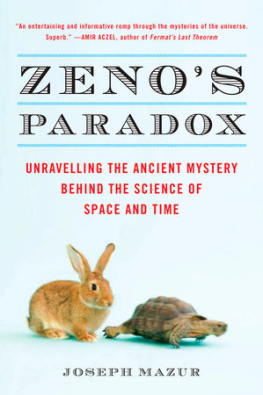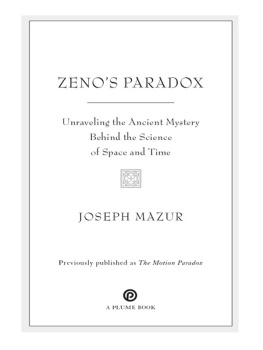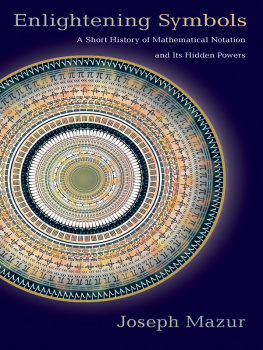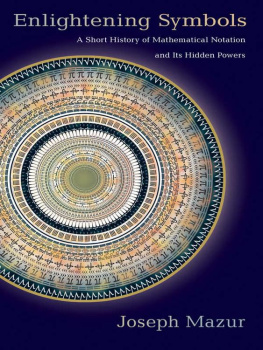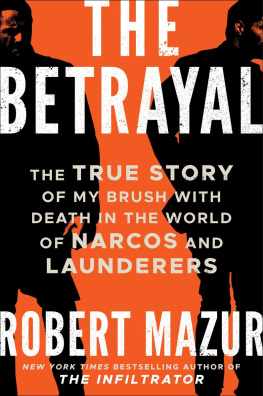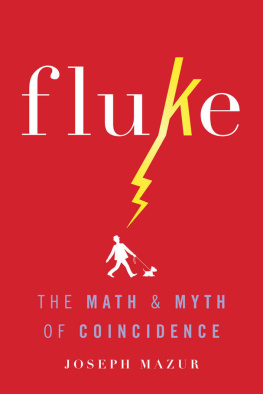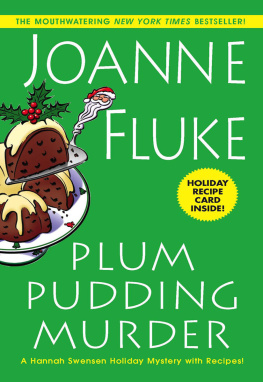Joseph Mazur - Fluke: The Math and Myth of Coincidence
Here you can read online Joseph Mazur - Fluke: The Math and Myth of Coincidence full text of the book (entire story) in english for free. Download pdf and epub, get meaning, cover and reviews about this ebook. year: 2016, publisher: Basic Books, genre: Religion. Description of the work, (preface) as well as reviews are available. Best literature library LitArk.com created for fans of good reading and offers a wide selection of genres:
Romance novel
Science fiction
Adventure
Detective
Science
History
Home and family
Prose
Art
Politics
Computer
Non-fiction
Religion
Business
Children
Humor
Choose a favorite category and find really read worthwhile books. Enjoy immersion in the world of imagination, feel the emotions of the characters or learn something new for yourself, make an fascinating discovery.

- Book:Fluke: The Math and Myth of Coincidence
- Author:
- Publisher:Basic Books
- Genre:
- Year:2016
- Rating:5 / 5
- Favourites:Add to favourites
- Your mark:
- 100
- 1
- 2
- 3
- 4
- 5
Fluke: The Math and Myth of Coincidence: summary, description and annotation
We offer to read an annotation, description, summary or preface (depends on what the author of the book "Fluke: The Math and Myth of Coincidence" wrote himself). If you haven't found the necessary information about the book — write in the comments, we will try to find it.
Fluke: The Math and Myth of Coincidence — read online for free the complete book (whole text) full work
Below is the text of the book, divided by pages. System saving the place of the last page read, allows you to conveniently read the book "Fluke: The Math and Myth of Coincidence" online for free, without having to search again every time where you left off. Put a bookmark, and you can go to the page where you finished reading at any time.
Font size:
Interval:
Bookmark:
Advance Praise for Fluke
A tour de force of masterful writing that weaves together simple and not-so-simple mathematical notions of probability and statistics into various intriguing coincidences from fact and fiction, explaining with nuance various strange phenomena. Mazurs book will teach you some of this mathematics, leaving you quite equipped to understand the role of chance in your life without resorting to magical thinking.
Gizem Karaali, editor of the Journal of Humanistic Mathematics
The chances were very slim that youd ever read this blurb. A simple-minded calculation puts the odds at about 50,000 to one against. Yet... here you are. How weird is this seemingly far-fetched coincidence? Well, dear reader, youve picked up the right book to answer that question.
Charles Seife, author of Zero:The Biography of a Dangerous Idea
Joseph Mazurs Fluke walks the reader, hand in steady hand, through the weird and dangerous landscape of extreme probability, distinguishing cause from correlate and phenomenon from mere coincidence.
Jordan Ellenberg, author of How Not to Be Wrong:The Power of Mathematical Thinking
An exciting addition to the ranks of books exploring the mysteries of chance and coincidence in the vein of The Black Swan and The Improbability Principle.
David J. Hand, professor of mathematics at Imperial College and author of The Improbability Principle
Fluke is going to surprise you as a lay reader. You will learn, for instance, that DNA matching is not always clear evidence of guilt in court, and that meeting an acquaintance on your only trip to Disneyland may not be as unlikely as you thought. Mathematician Joe Mazur has written an excellent book, where he shows that probabilistic outcomes are often non-intuitive and unexpected.
Florin Diacu, author of the award-winning book Megadisasters: The Science of Predicting the Next Catastrophe

ALSO BY JOSEPH MAZUR
Euclid in the Rainforest: Discovering Universal Truth in Logic and Math
(2006)
Zenos Paradox: Unraveling the Ancient Mystery Behind the Science of Space and Time
(2008)
Whats Luck Got to Do with It? The History, Mathematics, and Psychology of the Gamblers Illusion
(2010)
Enlightening Symbols: A Short History of Mathematical Notation and Its Hidden Powers
(2014)
EDITED BY JOSEPH MAZUR
Number: The Language of Science
(2007)

Copyright 2016 by Joseph Mazur
Published by Basic Books,
A Member of the Perseus Books Group
All rights reserved. Printed in the United States of America. No part of this book may be reproduced in any manner whatsoever without written permission except in the case of brief quotations embodied in critical articles and reviews. For information, contact Basic Books, 250 West 57th Street, New York, New York 10107.
Books published by Basic Books are available at special discounts for bulk purchases in the United States by corporations, institutions, and other organizations. For more information, please contact the Special Markets Department at the Perseus Books Group, 2300 Chestnut Street, Suite 200, Philadelphia, PA 19103, or call (800) 810-4145, ext. 5000, or e-mail .
Library of Congress Cataloging-in-Publication Data
Names: Mazur, Joseph.
Title: Fluke: the math and myth of coincidence / Joseph Mazur.
Description: New York: Basic Books, [2016] | Includes bibliographical references and index.
Identifiers: LCCN 2015043288| ISBN 9780465040001 (ebook)
Subjects: LCSH: Coincidence theory (Mathematics) | Simultaneity (Physics) | Coincidence. | Chance.
Classification: LCC QA612.24 .M39 2016 | DDC 514/.2dc23 LC record available at http://lccn.loc.gov/2015043288
10 9 8 7 6 5 4 3 2 1
To my inspiring daughters, Catherine and Tamina
Contents
MY UNCLE HERMAN once packed a years course on metaphysics into a single short sentence: Everything that happens just happens because everything in the world just happened. He was lecturing me at a very impressionable time in my life, when my other uncles, his younger brothers, were teaching me how to read a racing form, hoping to bring me into the family gambling pastime. I was just ten years old at the time, and didnt know what to make of Hermans baffling adage. For years it was a recording in my brain, incubating there, replaying, until sometime in early adulthood when its meaning finally hatched. As a child, I was always questioning why certain things happened and others didnt, and as for most children, the answers came through repeated circulations of what-ifs.
Hermans younger brother Jack was knocked unconscious at a high school boxing match, and for the rest of his life he suffered from headaches and some kind of mental health disorder judged serious enough for him to be committed to life at an asylum. He got weekly shock treatments at Greystone Park, a place that at once upon a time was officially called the New Jersey State Lunatic Asylum. Even the name of his treatment was shockingelectroconvulsive therapy. For half of Jacks life he endured the agony of those brutal jolts going through metal plates tightly sandwiching his head. One can only imagine what that horrid experience was like, a torture like no other, worse, he said, than being continually stung by a million hornets. Each shock lasted no more than a nanosecond, but its beastly memory dawdled to return shuddering aftershocks.
Except for the stubble of gray whiskers covering his pockmarked cheeks, Jack never came across to me as strange. He had the best jokes, the warmest genuine smile, and the best adventure storiestold as if they actually happened.
So, my ten-year-old mind spent some time pondering the what-ifs of timing, as if the knockout was the real cause of all of Jacks abnormality, and as if I could turn back the clock to have one of my favorite uncles live a normal life. What if he had been sick that day and hadnt gone to school? What if his boxing opponent had been sick that day, or... what if Jack had knocked out the other guy first? Two special events coincided at one moment of time. They always do, of course. But the knockout was the result of a direct hit to the head at the precise moment when Jacks guard was just too low to protect him. Too low, and too slow.
My childhood was filled with what-ifs in hopes of amending unpleasant timings, but the most poignant one happened shortly before my thirteenth birthday. I was on my way home from school, riding my red Raleigh three-speed bike along a flat cracked concrete sidewalk, when a stone hit the spokes of the front wheel and ricocheted to the door of a parked car. I braked and turned to see who had thrown it. At that moment the world suddenly turned red. I could still see. It was as if my stunned brain had not yet processed what had happened. Through the blood rushing from my eyelid I could see a boy across the street ready to throw his next stone. He didnt seem to understand that he had already hit me in the eye. I screamed and fell to the pavement, not fully grasping what had just happened. The next moment I remember is sitting up in a hospital bed with my left eye bandaged, learning that I would probably never again see from that eye. Those what-ifs were so strong that it took years for them to calm down. When I put the quandary to my mother, she gave me the consolation that I was lucky that the rock had not hit my skull and dumbed my brain.
Next pageFont size:
Interval:
Bookmark:
Similar books «Fluke: The Math and Myth of Coincidence»
Look at similar books to Fluke: The Math and Myth of Coincidence. We have selected literature similar in name and meaning in the hope of providing readers with more options to find new, interesting, not yet read works.
Discussion, reviews of the book Fluke: The Math and Myth of Coincidence and just readers' own opinions. Leave your comments, write what you think about the work, its meaning or the main characters. Specify what exactly you liked and what you didn't like, and why you think so.

